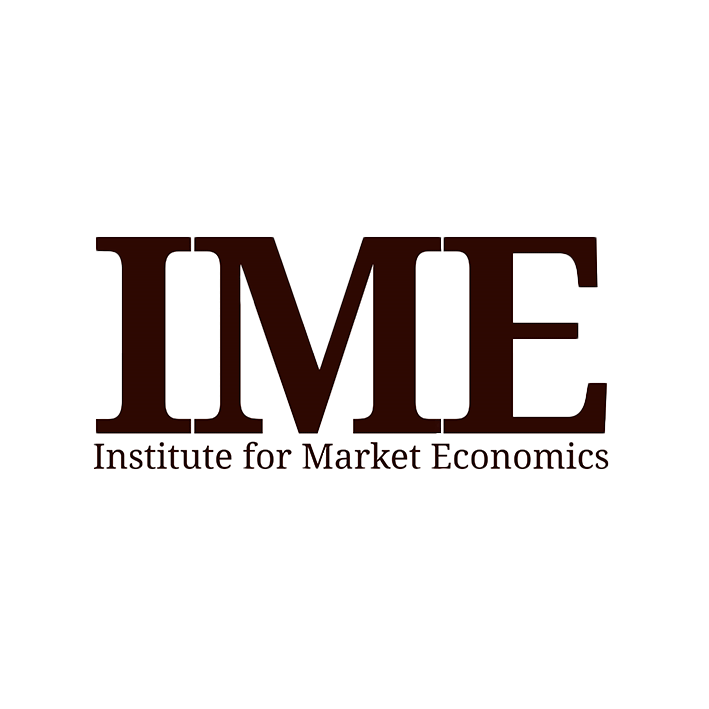Finland was the least liberal country in the first three editions of the Nanny State Index, but it has been edged out of the top three by the arrival of Turkey and Norway and by the growing extremism of Lithuania. Adjusted for income, Finland’s alcohol taxes are the third highest on the list, but its temperance legislation is not quite as extensive as Lithuania’s. It has draconian regulation of e-cigarettes, including a ban on all flavours except tobacco, but it falls short of Norway’s complete ban.
As in most Nordic countries, alcohol retail is a state monopoly. The 2018 Alcohol Act brought a degree of liberalisation, allowing the sale of alcoholic drinks of up to 5.5 per cent alcohol concentration in grocery stores and permitting restaurants to advertise their happy hours discounts. Restaurant opening hours were relaxed, and the state-owned retailer, Alko, has had its closing time pushed back from 8 PM to 9 PM.
Finland abolished its taxes on confectionery, chocolate, and ice cream in January 2017. A tax on fizzy drinks remains in place at a rate of €0.22 per litre of sugar-sweetened drinks and €0.11 per litre of non-sugary drinks.
Perhaps due to the cold climate, Finland has a less draconian smoking ban than some EU countries and permits designated smoking rooms, but vaping is banned wherever smoking is banned and some outdoor areas are included. In addition to a total ban on tobacco advertising, there is a retail display ban and a vending machine ban.
These modest measures, which were opposed by ‘public health’ campaigners, represent the limits of Finnish liberalisation. Nearly all alcohol advertising outdoors was banned in 2015. Spirits cannot be advertised in any media. Wine and beer can only be advertised on television after 10 PM. Plain packaging for tobacco and e-cigarette products will begin in May 2023. Smoking is now prohibited on public beaches between May and September. Nicotine pouches are regulated as medicines.
A punitive tax on e-cigarette fluid of €0.30 per ml was introduced in January 2017 and also applies to ‘nicotine-free liquids’. Internet and cross-border sales of e-cigarette products have been illegal since June 2017.
The explicit goal of Finnish tobacco control policies is to make Finland not only a smoke-free but also a nicotine-free country. The Tobacco Act, which came into force in August 2016, banned smoking in cars carrying children under the age of 15. Although snus is popular, all smokeless tobacco is banned, and e-cigarettes are subject to the same regulation as tobacco, including a full advertising ban. Not only does this ban include e-cigarettes, but it also includes products that resemble tobacco products, such as liquorice pipes. Shops have to buy a licence to sell tobacco, and the price of the licences has risen sharply since 2016 in a deliberate attempt to discourage retailers from selling it. The new Tobacco Act also allows housing corporations to apply for a licence to make smoking illegal on their balconies and outdoor areas.
With thanks to the Tero Lundstedt, Libera Foundation
About
The Nanny State Index (NSI) is a league table of the worst places in Europe to eat, drink, smoke and vape. The initiative was launched in March 2016 and was a media hit right across Europe. It is masterminded and led by IEA’s Christopher Snowdon with partners from all over Europe.
Enquiries: info@epicenternetwork.eu
Download Publication
Previous versions: 2021, 2019, 2017
Categories
About the Editor
Christopher Snowdon is the head of Lifestyle Economics at the Institute of Economic Affairs. His research focuses on lifestyle freedoms, prohibition and policy-based evidence. He is a regular contributor to the Spectator, Telegraph and Spiked and often appears on TV and radio discussing social and economic issues.
Snowdon’s work encompasses a diverse range of topics including ‘sin taxes’, state funding of charities, happiness economics, ‘public health’ regulation, gambling and the black market. Recent publications include ‘Drinking, Fast and Slow’, ‘The Proof of the Pudding: Denmark’s Fat Tax Fiasco’, ‘A Safer Bet’, and ‘You Had One Job’. He is also the author of ‘Killjoys’ (2017), ‘Selfishness, Greed and Capitalism’ (2015), ‘The Art of Suppression’ (2011), ‘The Spirit Level Delusion’ (2010), ‘Velvet Glove, Iron Fist’ (2009).
Finland 2023
Finland was the least liberal country in the first three editions of the Nanny State Index, but it has been edged out of the top three by the arrival of Turkey and Norway and by the growing extremism of Lithuania. Adjusted for income, Finland’s alcohol taxes are the third highest on the list, but its temperance legislation is not quite as extensive as Lithuania’s. It has draconian regulation of e-cigarettes, including a ban on all flavours except tobacco, but it falls short of Norway’s complete ban.
As in most Nordic countries, alcohol retail is a state monopoly. The 2018 Alcohol Act brought a degree of liberalisation, allowing the sale of alcoholic drinks of up to 5.5 per cent alcohol concentration in grocery stores and permitting restaurants to advertise their happy hours discounts. Restaurant opening hours were relaxed, and the state-owned retailer, Alko, has had its closing time pushed back from 8 PM to 9 PM.
Finland abolished its taxes on confectionery, chocolate, and ice cream in January 2017. A tax on fizzy drinks remains in place at a rate of €0.22 per litre of sugar-sweetened drinks and €0.11 per litre of non-sugary drinks.
Perhaps due to the cold climate, Finland has a less draconian smoking ban than some EU countries and permits designated smoking rooms, but vaping is banned wherever smoking is banned and some outdoor areas are included. In addition to a total ban on tobacco advertising, there is a retail display ban and a vending machine ban.
These modest measures, which were opposed by ‘public health’ campaigners, represent the limits of Finnish liberalisation. Nearly all alcohol advertising outdoors was banned in 2015. Spirits cannot be advertised in any media. Wine and beer can only be advertised on television after 10 PM. Plain packaging for tobacco and e-cigarette products will begin in May 2023. Smoking is now prohibited on public beaches between May and September. Nicotine pouches are regulated as medicines.
A punitive tax on e-cigarette fluid of €0.30 per ml was introduced in January 2017 and also applies to ‘nicotine-free liquids’. Internet and cross-border sales of e-cigarette products have been illegal since June 2017.
The explicit goal of Finnish tobacco control policies is to make Finland not only a smoke-free but also a nicotine-free country. The Tobacco Act, which came into force in August 2016, banned smoking in cars carrying children under the age of 15. Although snus is popular, all smokeless tobacco is banned, and e-cigarettes are subject to the same regulation as tobacco, including a full advertising ban. Not only does this ban include e-cigarettes, but it also includes products that resemble tobacco products, such as liquorice pipes. Shops have to buy a licence to sell tobacco, and the price of the licences has risen sharply since 2016 in a deliberate attempt to discourage retailers from selling it. The new Tobacco Act also allows housing corporations to apply for a licence to make smoking illegal on their balconies and outdoor areas.
With thanks to the Tero Lundstedt, Libera Foundation
 Austria
Austria Belgium
Belgium Bulgaria
Bulgaria Croatia
Croatia Cyprus
Cyprus Czech Republic
Czech Republic Denmark
Denmark Estonia
Estonia Finland
Finland France
France Germany
Germany Greece
Greece Hungary
Hungary Ireland
Ireland Italy
Italy Latvia
Latvia Lithuania
Lithuania Luxembourg
Luxembourg Malta
Malta Netherlands
Netherlands Norway
Norway Poland
Poland Portugal
Portugal Romania
Romania Slovakia
Slovakia Slovenia
Slovenia Spain
Spain Sweden
Sweden Turkey
Turkey United Kingdom
United Kingdom


















